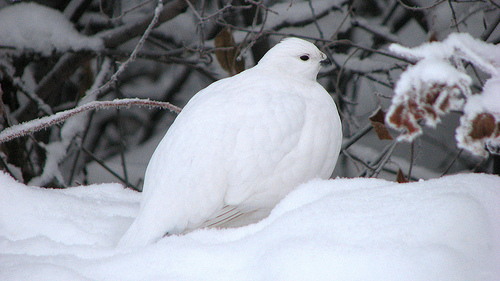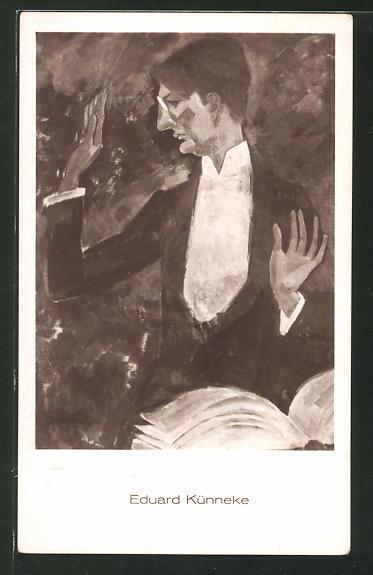
Arctic birds, the Ptarmigan
ENDNOTES, February 2019
In this edition: choral music by Rautavaara, orchestral music by Künneke, reviewed by STUART MILLSON
Einojuhani Rautavaara (1928-2016) enjoyed fame in Britain in the latter part of his life. His orchestral music – semi-romantic and Sibelius-infused – reflected the landscape and birdlife of Finnish coasts and Baltic marshes, especially the 1972 piece, Cantus Arcticus, in which a recording of bird-song plays over an orchestral accompaniment. The composer, from a Lutheran background, later embraced the Eastern Orthodox Church and what might be described as a general spirituality – with Hinduism added to the mix. “A sense and taste for the infinite” – these are the words of Rautavaara’s favourite philosopher, Friedrich Schleiermacher concerning religion, and this neat description summarises the composer’s own viewpoint. Also dating from 1972 is a work entitled Credo – a pre-echo of the Mass (Missa a cappella) which crowned the composer’s last great creative period, and which constitutes the main work on a new CD from the Chronos label.
Performed by the Helsinki Chamber Choir conducted by Nils Schweckendiek, Rautavaara’s choral writing exudes an atmosphere of the frozen North (grey skies, short daylight hours, the jagged outline of pine trees near remote village churches) and a beauty and reflection that would inspire any congregation or church festival. Although this is clearly contemporary music, there are pleasing, hushed – even archaic and traditional touches – and it might be that a British choral group or society could programme the Rautavaara Mass alongside the unaccompanied mass by Ralph Vaughan Williams.
And Vaughan Williams certainly came to mind in the second Rautavaara work on the CD – Our Joyful’st Feast, three yuletide or winter settings: Love’s Labour’s Lost (… “and birds sit brooding in the snow/And Marian’s nose looks red and raw”); a merry scene of holly, garlands and full cups by George Wither; and Act 1, Scene 1 of Hamlet– “This Bird of Dawning singeth all night long/And then, they say, no spirit dare stir abroad…” A vision of winter half-light and a spiritual quest, rooted to land, culture and religion.
Works by the Helsinki-born Letta Wennäkoski complete the programme, although the more fragmented “word-play” and bolder, almost shouted passages do not, at least for this reviewer, complement the Rautavaara. Wennäkoski, sometimes referred to as a “lyrical modernist”, is influenced by passages from the Bible and has attracted the attention of pro-modernist, commissioning conductors, such as Esa-Pekka Salonen – famous for his work with the Philharmonia Orchestra.
From contemporary music for voices, to the much softer, dance-band-era-influenced neo-romanticism of Eduard Künneke (1885-1953) – a German composer, almost completely overlooked in this country. His 32-minute-long Piano Concerto, Op. 36 was first heard in Berlin in 1935. This work is brilliantly revived and rescued by the Munich Radio Orchestra, conducted by Ernst Theis and performed by soloist, Oliver Triendl – a pianist who has worked with virtually every leading and regional German orchestra.
The mid-1930s in Germany was an era when only the pure Rhineland water of Beethoven or Wagner could be tolerated by the cultural censors, but somehow Künneke’s mixture of operetta-type lyricism and cafe-orchestra rhythms recommended him to the wider German public. With lush but never overbearing orchestral writing, the composer conjures a colourful, congenial concerto.
Completing the recording are two substantial “fillers” – a gypsy-influenced Romance and a Serenade, both perfectly realised in the refined playing of the orchestra of Munich Radio.

Credit, Künstler-Ansichtskarte Schauspieler Eduard Künneke dirigierend, Portrait
Stuart Millson is Classical Music Editor of Quarterly Review
Rautavaara etc., choral works, ICSM Records, 013
Künneke, Piano Concerto, Ziguenerweisen, Serenade. CPO, 555 015-2
************************************

Anita Rachvelishvili
Orchestral Concert; Orchestra of the Royal Opera House conducted by Sir Antonio Pappano, Friday 8th February 2019, Royal Opera, reviewed by LESLIE JONES
If Antonio Pappano ever tires of conducting, another career surely awaits him, for his introduction to this concert was amusing and informative. Indeed, he has already presented two series for BBC television, to wit, “Opera Italia” and “Pappano’s Classical voices”. As he remarked, the influence of Nikolay Rimsky-Korsakov pervaded this all Russian programme. Rimsky was “Stravinsky’s great teacher and father figure” (David Nice, “Catherine Wheels and Starbursts”, Official Programme). Stravinsky’s Fireworks (Feu d’artifice), which opened the concert, was first performed in 1910 and is an homage to Korsakov, who died in 1908, shortly after its completion. Hearing a performance of Fireworks eventually led Sergey Diaghilev to invite Stravinsky to compose the score for the ballet The Firebird.
My Russian colleague, like much of the audience, was transported to heaven during Georgian soprano Anita Rachvelishvili’s bravura performance of songs by Sergey Rachmaninoff, which are imbued with a love for Russian landscape. Ms Rachvelishvili has already enjoyed a stellar career. She performed the part of Carmen at several major opera houses, including Royal Opera, and has an impressive set of roles in her repertory (see www.anitarachvelishvili.com).
Rachmaninoff was famously lugubrious. The titles of this selection of songs are indicative, in this context. Thus, song two is entitled ‘All things depart’ (op.26 no.15); song three is called, ‘So dread a fate I’ll ne’er believe’ (op.34 no 7) and tells of struggle, sorrow and death; in ‘When yesterday we met’ (op.26 no. 13), a final meeting with a dying person is recalled, and it includes the line ‘Farewell you ruined, dear creature’. The range of Ms Rachvelishvili’s voice and her powerful personality had the perfect showcase here. She received numerous curtain calls, especially from her enthusiastic compatriots.
This nicely balanced concert concluded with Tchaikovsky’s Suite no.3 in G major op.55. Maestro Pappano evidently loves this work, with its moving leitmotif, its echoes of Souvenir de Florence and anticipations of Symphony no. 6 (the “Pathetique”). One quibble, however. Pappano claims that in Suite no.3, Tchaikovsky escaped into musical history, creating a tranquil, pastoral world. Yet as David Nice informs us (‘Public, Personal and Private’, Official Programme), its emotional subtext is ‘transgressive, if unconsummated, love…’
Dr Leslie Jones is Editor of QR











Hitler awarded Sibelius with the Goethe Medal.